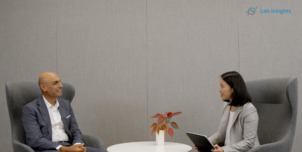Timely reporting of critical results is an essential responsibility of most clinical labs. A recent letter in the Annals of Clinical Biochemistry provides fresh data on how turnaround time (TAT) targets and modes of reporting for critical results vary between government hospitals, private hospitals and private commercial labs in the Asia Pacific region.
The letter was based on the latest results from the Asia Pacific Laboratory Benchmarking Survey, a survey by Roche Diagnostics that measures the operational effectiveness of clinical labs across the region. The survey data, which included 1150+ labs from 20 countries across the region, shows that the majority of the labs in the sample have critical reporting time KPIs of less than 10 minutes. It suggests that government and private hospitals, on average, have tighter TAT targets for critical results than private commercial labs.
While the vast majority of labs still use phone calls to report critical results, private commercial labs are more likely to use digital modes of critical results reporting, such as email or mobile messaging apps. Government hospitals, by contrast, rely more on nurse station alert systems.
The letter was co-authored by Dr Tony Badrick, CEO of The Royal College of Pathologists of Australasia; Dr Mohamed Saleem, Consultant Chemical Pathologist at SA Pathology in Adelaide, Australia; and Wesley Wong, Lab Insights Consulting Manager at Roche Diagnostics Asia Pacific. To read the full letter, see Turnaround times and modes of reporting critical results in Asian laboratories.
This letter is the latest in a series of data-driven reports and peer-reviewed publications that have been published with the Asia Pacific Laboratory Benchmarking Survey. Look out for more research in the coming months, including a forthcoming deep-dive on operational effectiveness in Chinese clinical labs. For more information, contact Wesley Wong ([email protected]).








